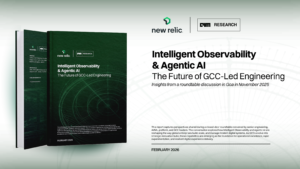The “Future of Jobs Report 2023” by the World Economic Forum sheds light on how labour markets undergo profound transformations driven by technological breakthroughs, economic and geopolitical disruptions, and mounting social and environmental pressures. With enterprises transforming faster than ever, the demand for data AI skills and an AI-ready workforce has never been more pronounced. Furthermore, generative AI has the potential to change every role in the organization and will have a significant impact on work and the way we work. These factors redefine the business landscape and workforce dynamics, and organizations must rethink their approach.
The Shifting Workforce Landscape
Environmental, technological, and economic trends primarily influence job creation and destruction shifts. Businesses are increasingly diverting their investments toward initiatives that facilitate sustainable and environmentally responsible practices. Simultaneously, the adoption of ESG (Environmental, Social, and Governance) standards is rising, compelling companies to prioritize their environmental and social responsibilities. Furthermore, supply chains embrace localization, reflecting a growing emphasis on sustainability and resilience.
With the increasing adoption of AI, there will be a notable surge in demand for AI skills, compounded by significant workforce changes, with some roles becoming obsolete and new roles emerging—for example, prompt engineers. These people design, test, and improve the prompts given to large language models (LLMs) while ensuring the outputs are generated cost-effectively, carbon-neutral, and computationally efficient. Increasingly, AI is expected to serve as a copilot rather than a replacement. This dynamic synergy between humans and machines streamlines operations and unlocks a new realm of possibilities for innovation and productivity.
Challenges for Organizations
Despite the clear need for AI skills and data-related expertise, there’s a challenge that many organizations need to grapple with. A mere 10% of organizations achieve significant financial benefits with AI. Those that do deploy multiple human-machine learning approaches. According to a survey, 69% of Chief Data Officers have cited a talent shortage as one of the top barriers to the success of their data and AI initiatives. Additionally, 55% expected the situation to remain the same or worsen in the coming years.
One of the contributing factors to this challenge is ineffective talent transformation programs, which rely on traditional approaches to attract, nurture, and retain employees. Gallup’s 2022 report on the state of the global workplace revealed that a mere 21% of employees felt engaged with their work. Add a one-size-fits-all learning and skilling approach based on learning hours and completion metrics, which has not yielded outcomes as initially expected.
The problem is more than talent scarcity or skill gaps; it is more about an organization’s ability to build a future-ready AI workforce which keeps pace with the transformative potential and evolution of AI. This requires alternative thinking and the entire C-suite to be accountable for driving the change.
Amid these changing dynamics, some forward-looking organizations have proactively anticipated the transformations AI technologies would bring to the workforce and have taken steps to prepare their employees. This strategic approach has positioned these companies as leaders in helping clients embark on similar journeys.
The key to effective talent transformation lies in adopting innovative hiring and retention strategies, focusing on upskilling and reskilling in data and AI, fostering a culture of data and AI proficiency, democratizing data access, and embracing human-machine collaboration. Innovative talent acquisition and retention approaches surpass quick fixes, while personalized and immersive data and AI learning programs ensure a skilled workforce.
Promoting data culture and AI fluency through KPIs like data sharing and ML model sharing enhances team performance. Democratizing data access through user-friendly interfaces and data marketplaces benefits the entire organization. Reimagining human-machine collaboration by incorporating AIOps, AutoML, self-service tools, and low-code technologies transforms the workplace. As an MIT survey indicates, embracing these changes requires new AI skills and a willingness to become a data-driven organization. Most importantly, skilling the unique workforce needs progressive thinking—creating spaces for experimentation with new technologies, immersive learning experiences and opportunities for on-the-job upskilling.
The Future of AI Skills and Data Culture
As organizations continue to walk their talk, it becomes evident that learning development plays a crucial role. They craft tailored courses for various roles, actively participate in industry forums, and integrate technology tools for a seamless learning experience.
Partnerships with universities reinforce their commitment to nurturing talent. These partnerships cover a range of programs, from generative AI training to foundation model scholar programs, all designed to meet client needs effectively.
By fostering a learning and continuous improvement culture, these organizations have made learning adoption a central theme. They drive global data and AI skills uptake through region-specific upskilling campaigns, interactive learning initiatives, and engaging events.
Additionally, they have established networks that tap into the expertise of luminaries from renowned institutions, creating vibrant ecosystems for knowledge sharing and innovation.
Key Takeaways for Leadership
Organizations will likely develop a more open and transparent environment as the data and AI practice matures. This will make the leadership more vulnerable to shortcomings in their respective organization or empower them to get into top gear because they can make fact-based decisions. Consider asking yourself these questions as you develop your talent-skilling, reskilling and upskilling strategy:
- To what extent can AI revolutionize talent acquisition, engagement and retention at my organization, and how?
- Am I aware of how my employees feel about their assignments, training and project deployment? Surveys have been a popular way to gather employee feedback, but they have yet to understand these aspects effectively.
- At my organization, can we balance the needs of Gen X, Gen Y, Gen Z and older generations to create a cohesive, thriving, progressive work culture?
- Is my company’s skilling, reskilling and talent retention program practical? Irrespective of their level, an employee’s mental state plays a massive role in their ability to stay engaged and productive. If Gallup’s 2022 report on the state of the global workplace is believed, only 21% of employees worldwide felt engaged with their work. This should send alarm bells among employers because it implies that the remaining employees—79%, which is a considerable number—were not interested in their work. Surely, this must have translated to a loss in productivity and rising costs.
- Have we, as an organization, developed the ability to listen to our people and feel the undercurrents? This is very important to anticipate and prevent them from reaching the stage when they decide to quit.
- Am I aware of the cost to my company when one or more employees quit? According to Gallup’s estimate, low engagement is costing the global economy $8.8 trillion (or 9% of global GDP), with only 23% reporting that they are thriving at work (i.e., engaged), a whopping 59% are quitting quietly and 18% are making a loud exit. Even though we are gradually recovering from the worst of the pandemic, stress levels are at a record high. To this, if we add the World Economic Forum’s report on the Global Gender Gap, 2023, it becomes very clear that much work must be done to attract, nurture and retain women in the workforce. Mckinsey’s Women in Workplace report draws our attention to another aspect: women seek a different work culture.
In Conclusion
In the evolving world of data and AI, businesses need to adopt technology and a proactive approach to talent and skills development, creating an environment to attract, nurture and retain employees. Those who invest in innovative skilling strategies, promote a data-driven culture, and foster collaboration between humans and machines are well-positioned to leapfrog their competitors and set new industry standards. The future belongs to those who prepare their workforce to thrive in an AI-powered world.






